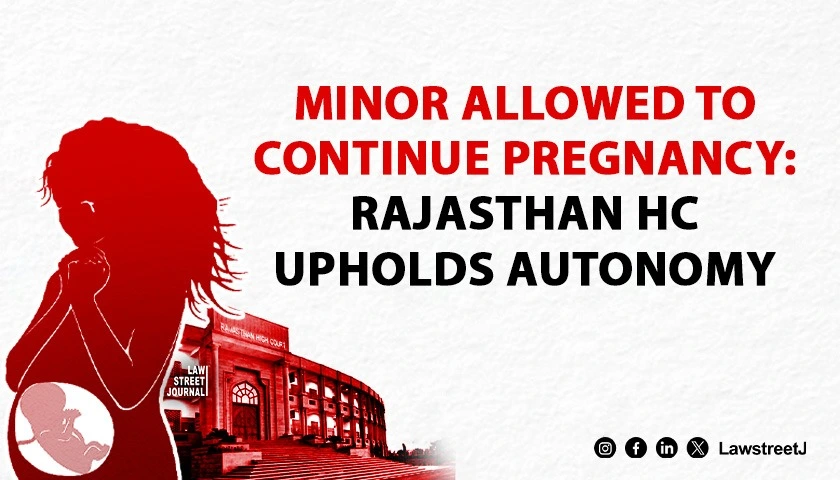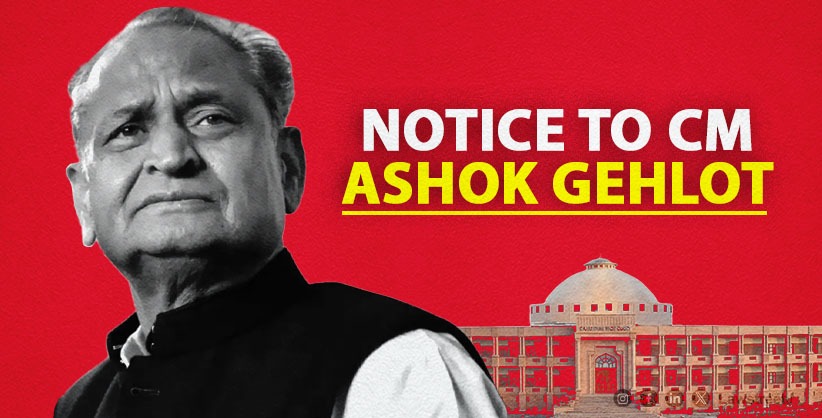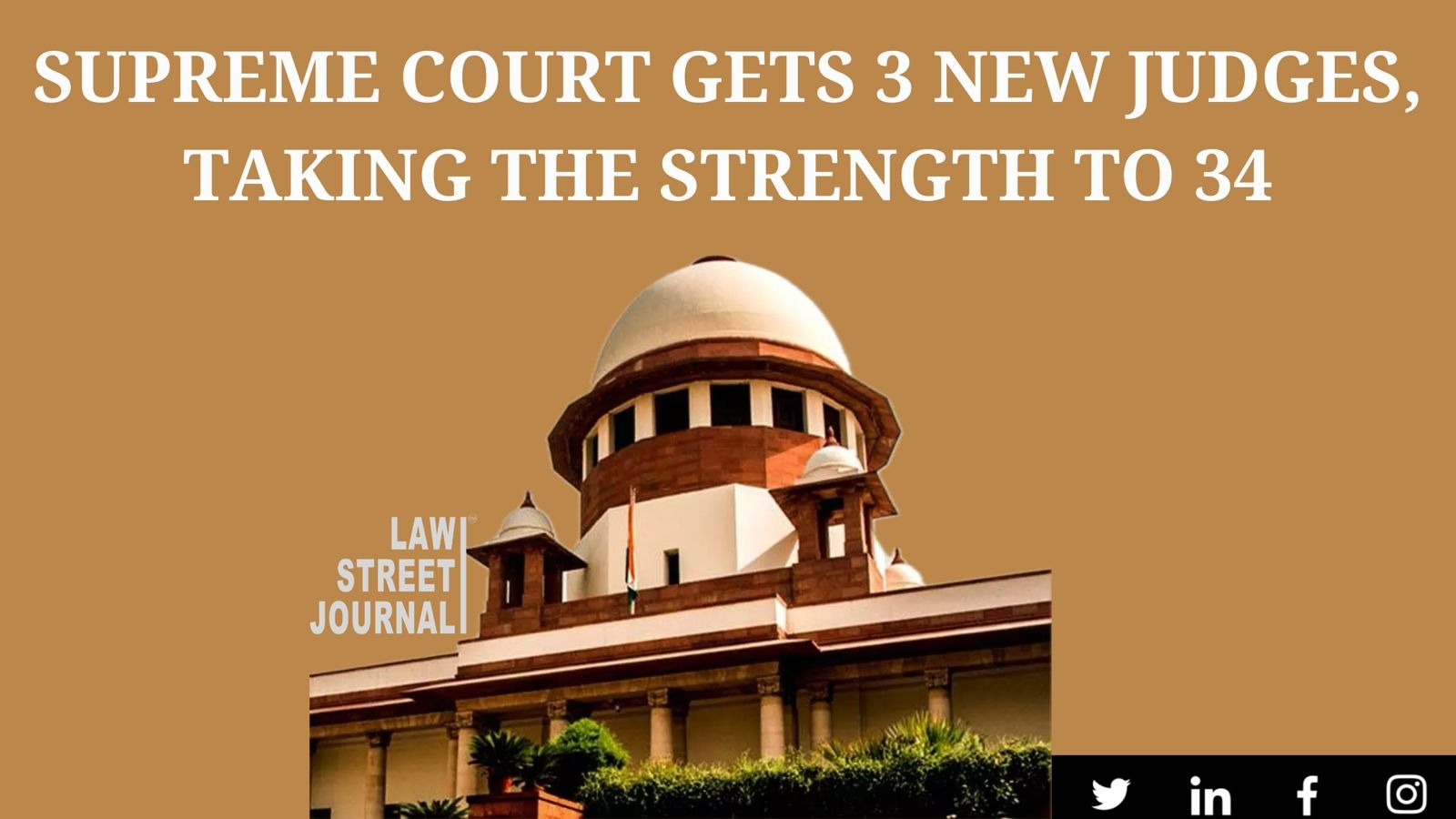Rajasthan: The Rajasthan High Court has delivered a significant judgment upholding a minor’s reproductive autonomy, dismissing a mother’s petition seeking termination of her 17-year-old daughter’s pregnancy, as the minor expressed unwillingness to abort the child.
Justice Chandra Prakash Shrimali made crucial observations on reproductive rights and the autonomy of pregnant women, including minors, in making decisions about their own bodies.
The case involved a writ petition filed by a mother seeking direction to terminate the pregnancy of her minor daughter ‘S’ (aged 17 years and 5 months), who was allegedly a victim of rape. The court noted that the minor had left home with the accused Dinesh Kumar, whom she had known for nine years, and that a medical examination revealed a 22-week, 3-day pregnancy.
Addressing the specific concerns about consent and guardian rights, the court observed:
“The minor victim has a sufficient level of understanding regarding the consequences of her actions, and if her consent is completely ignored, it would lead to forcible termination of her pregnancy, which would cause grave mental and physical trauma to her.”
The court highlighted the fundamental issue of reproductive autonomy, stating:
“The pregnant woman has autonomy over her body, and it is only she who has the right to choose whether or not to terminate the pregnancy. The Hon’ble Apex Court, in the case of Suchita Srivastava v. Chandigarh Administration, has not allowed termination of pregnancy while considering the willingness of a mentally retarded woman to keep the child.”
In a specific directive, the court ordered:
“All medical expenses of the minor pregnant victim shall be borne by the State Government, and she shall be provided with appropriate medical facilities for her delivery. The Rajasthan State Legal Services Authority (RLSA) and the District Legal Services Authority (DLSA), Jodhpur, are further directed to pay suitable compensation to the daughter of the petitioner under the Rajasthan Victim Compensation Scheme, 2011.”
The court emphasized the constitutional right to reproductive choice, stating:
“The minor victim has the right to beget or create life, which is a facet of the Right to Life guaranteed under Article 21 of the Constitution of India.”
The case involved complex factors, including a consent memo dated 05.06.2025, where the minor categorically stated her unwillingness to abort the fetus, and her statement to the police indicating consensual intercourse rather than coercion. The court noted that, despite being a minor, she was “a sufficiently mature girl capable of taking a decision and understanding the consequences thereof.”
The court also referred to the Supreme Court’s decision in A (Mother of X) v. State of Maharashtra, emphasizing that
“Where the opinion of a minor pregnant person differs from that of the guardian, the court must regard the view of the pregnant person as an important factor while deciding on termination of pregnancy.”
The judgment clarified that while Section 3(4)(a) of the Medical Termination of Pregnancy (MTP) Act provides for guardian consent, it does not address situations where there is divergence between the views of the minor and the guardian, leaving interpretation to the courts based on individual circumstances.
Ms. Sapna Vaishnav, Advocate, appeared for the petitioner, whereas Mr. I.R. Choudhary, AAG, with Mr. Pawan Bhari, Advocate, along with Mr. N.S. Rajpurohit, AAG, Mr. Shersingh Rathore, AAAG, and Ms. Rakhi Choudhary, Advocates, appeared for the respondents.





![Supreme Court Collegium approves new Chief Justices for five key High Courts in India [Read Recommendations]](/secure/uploads/2023/12/lj_8000_380d1135-6f3a-4988-a00a-4d5cd5901815.jpg)
!["Consolidate bail pleas in identical FIR cases to ensure consistent judicial decisions": Supreme Court to High Courts [Read Order]](/secure/uploads/2023/12/lj_4845_8d23b142-dc06-4f22-955f-04342d1d5bd2.jpg)




